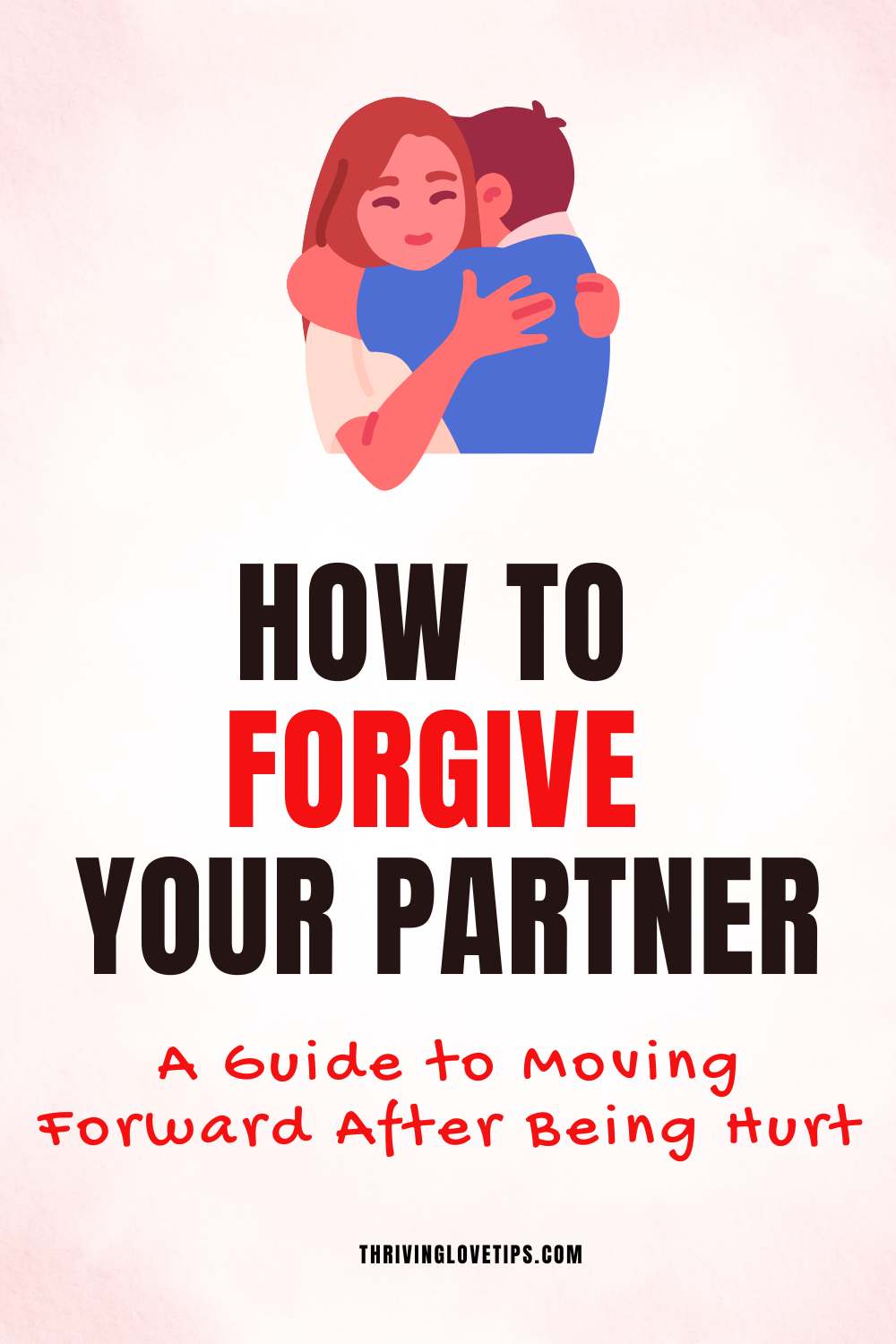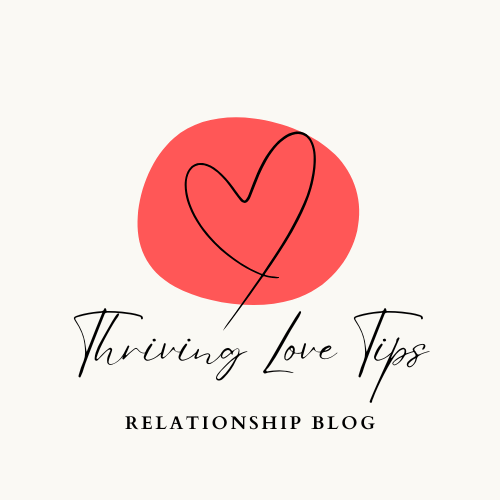Your partner hurt you. Maybe it was something big, like betrayal or broken trust. Maybe it was something smaller but still painful, like harsh words said in anger or a forgotten promise that really mattered. Whatever it was, you’re left with this question that feels both simple and impossibly complex: How do you forgive them? And perhaps more importantly, should you?
Forgiveness is one of those concepts everyone talks about but few people truly understand. We’re told we should forgive, that holding grudges is unhealthy, that forgiveness is the path to peace. But what does forgiveness actually mean? Does it mean pretending the hurt never happened? Does it require you to trust them again immediately? Does it mean you’re condoning what they did?
The truth is, forgiveness in relationships is messy and complicated. It’s not a switch you flip or a box you check. It’s a process, sometimes a long one, that requires honesty, vulnerability, and work from both people. It means acknowledging real pain while choosing not to let that pain define your future. It means finding a way to move forward without forgetting what happened, but also without letting it poison everything that comes after.

Understanding What Forgiveness Actually Means
Before you can forgive, you need to understand what you’re actually trying to do. Forgiveness isn’t about being nice, being the bigger person, or avoiding conflict. It’s not about letting your partner off the hook or pretending the hurt didn’t happen.
Dr. Janis Abrahms Spring, a clinical psychologist who specializes in forgiveness after infidelity, describes forgiveness as “a shift in thinking where you decide to give up your right to hurt your partner back for hurting you.” It’s a conscious choice to release the desire for revenge or retribution and to stop using their mistake as a weapon.
This is crucial because many people confuse forgiveness with reconciliation or restoration of trust. But these are separate things. Forgiveness is something you do primarily for yourself, to release the burden of anger and resentment. Reconciliation and trust-rebuilding require your partner’s active participation and changed behavior. You can forgive someone and still decide the relationship isn’t healthy for you. You can forgive someone and still maintain boundaries around what you’ll accept going forward.
Psychologist Dr. Fred Luskin, director of the Stanford Forgiveness Project, emphasizes that forgiveness is also not the same as condoning or excusing. “When you forgive, you’re not saying what happened was okay. You’re saying you’re no longer willing to suffer because of it.”
Understanding these distinctions is liberating. It means forgiveness is within your control. You don’t have to wait for your partner to earn it perfectly or to prove they’ve changed enough. You can choose it when you’re ready, for your own peace of mind, while still protecting yourself and maintaining clear expectations for the future.
Deciding If Forgiveness Is Even Possible
Not every hurt is forgivable, and not every relationship should continue after a betrayal. Before you dive into the work of forgiveness, you need to honestly assess whether forgiveness is possible and whether this relationship is worth fighting for.
Some questions to ask yourself: Is your partner genuinely remorseful, or are they just sorry they got caught? Are they taking full responsibility for their actions, or are they making excuses and blaming you? Have they made concrete changes to ensure this won’t happen again, or are they just promising it won’t while continuing the same patterns?
Dr. Harriet Lerner, psychologist and author, talks about the difference between a genuine apology and a non-apology. A real apology takes full responsibility, expresses genuine remorse, makes amends, and includes a commitment to change. A non-apology includes words like “but” and “if,” shifts blame, or focuses on the apologizer’s feelings rather than the harm done.
You also need to consider the pattern. Is this a one-time mistake from someone who’s otherwise been trustworthy and respectful? Or is this part of a pattern of behavior where they hurt you, apologize, and then do it again? One mistake can be forgiven and worked through. A pattern suggests fundamental issues that apologies alone won’t fix.
Additionally, consider your own well-being. Is staying in this relationship and working toward forgiveness going to help you heal and grow, or is it going to keep you stuck in pain? Sometimes the healthiest thing you can do is forgive from a distance, releasing the anger while also releasing the relationship.
There’s no shame in deciding something isn’t forgivable or that you can’t continue the relationship even if you do forgive. Forgiveness doesn’t obligate you to stay. It just frees you from carrying the weight of resentment wherever you go.
Creating Space for Your Feelings
If you’ve decided to work toward forgiveness, the first real step is allowing yourself to fully feel what you’re feeling. This might sound counterintuitive. Isn’t forgiveness about letting go of anger? Yes, eventually. But you can’t let go of something you haven’t first acknowledged and processed.
You’re probably experiencing a complicated mix of emotions: anger, hurt, betrayal, confusion, maybe even shame. These feelings are valid and important. They’re information about what you value, what boundaries were crossed, and what you need going forward. Trying to skip over them and jump straight to forgiveness is like building a house on sand. It won’t hold.
Therapist Esther Perel, who works extensively with couples dealing with infidelity and betrayal, emphasizes the importance of this grieving process. “You’re mourning the relationship you thought you had, the partner you thought they were, the security you felt. That loss is real, and it deserves to be honored.”
Permit yourself to be angry. To be hurt. To not be okay for a while. This doesn’t mean wallowing or using your pain to punish your partner indefinitely. It means acknowledging that something significant happened and that healing takes time.
You might find it helpful to express these feelings in various ways. Talk to a trusted friend or therapist who can hold space for your pain without judgment. Write in a journal, pouring out all the messy, complicated feelings without censoring yourself. Some people find physical expression helpful, whether that’s exercise, crying, or even something like throwing eggs at a wall (in a contained, safe way, of course).
The goal isn’t to amplify your anger but to honor it, understand it, and eventually move through it. Feelings that are acknowledged and processed naturally begin to shift. Feelings that are suppressed tend to fester and emerge in unhealthy ways.
Having the Hard Conversations
Forgiveness requires communication, often multiple difficult conversations where both of you are vulnerable, honest, and willing to really listen to each other. This is where the real work of healing happens, and it’s where many couples get stuck.
As the hurt partner, you need to be able to articulate what happened from your perspective, how it made you feel, and why it was significant. Your partner needs to truly hear this without getting defensive, without making excuses, without turning it around on you. This is harder than it sounds because our instinct when criticized is to defend ourselves.
Dr. John Gottman, relationship researcher, suggests using “I” statements to express hurt without attacking. Instead of “You’re a terrible person who betrayed me,” try “I feel devastated and betrayed by what happened. My trust is broken and I’m struggling to feel safe.”
Your partner’s role in these conversations is equally important. They need to take full responsibility, express genuine remorse, and resist the urge to minimize their pain or rush their healing. Phrases like “I know I hurt you and I’m truly sorry” are much more powerful than “I’m sorry you feel that way” or “Can’t we just move on?”
They also need to answer your questions honestly, even when it’s uncomfortable. You might need to understand what happened, why it happened, and what they’re doing to ensure it doesn’t happen again. Within reason, they need to provide that information. Transparency is crucial for rebuilding trust.
These conversations will probably happen multiple times. Healing isn’t linear, and you’ll likely need to revisit these discussions as new feelings emerge or as you process things more deeply. A partner committed to genuine reconciliation will understand this and be patient with the process.
It’s often helpful to have these conversations with a couples therapist who can facilitate communication, ensure both people are heard, and help you work through stuck points. A good therapist can also identify unhealthy patterns and teach you better ways of handling conflict and hurt.
Rebuilding Trust Through Actions
Forgiveness might begin with a decision, but it’s sustained through changed behavior. If your partner wants your forgiveness, they need to earn back trust through consistent, trustworthy actions over time. Words are important, but actions are what really matter.
What does this look like practically? It depends on what happened, but generally it involves several elements. First, your partner needs to be willing to be transparent, especially in the area where trust was broken. If they lied about where they were, they might need to share their location for a while. If they were secretive about their phone, they might need to be open about their communications.
Some people bristle at these requirements, feeling they shouldn’t be “monitored” or “controlled.” But here’s the thing: they broke trust. Rebuilding it requires them to be willing to be uncomfortable for a while. If they’re not willing to do that, they’re not truly committed to repair.
Second, they need to show through behavior that things have changed. If they hurt you because they were spending too much time with someone else, they need to establish appropriate boundaries with that person. If they hurt you through drinking too much, they need to address their relationship with alcohol. Changed behavior is the only real evidence that the problem won’t recur.
Third, they need to be consistently reliable in other areas of the relationship. They need to follow through on commitments, show up when they say they will, be emotionally present, and demonstrate through daily actions that they value you and the relationship.
Clinical psychologist Dr. Shirley Glass, who studied infidelity extensively, talks about this as “windows and walls.” After betrayal, your partner needs to be willing to create windows (transparency) where there were walls, and walls (boundaries) where there were inappropriate windows.
This rebuilding process takes time, often longer than either person expects or wants. You can’t rush trust. It develops gradually, through repeated experiences of your partner showing up, being honest, and honoring their commitments.
Letting Go of the Need for Punishment
Here’s one of the hardest parts of forgiveness: at some point, you have to stop punishing your partner for what they did. This doesn’t mean forgetting or pretending it didn’t hurt. It means choosing not to weaponize their mistake in every future argument, not to bring it up every time you’re upset about something else, not to use it to make them feel small or to establish moral superiority.
Many people get stuck here. They say they’ve forgiven, but they keep score. They remind their partner of their failure whenever they want to win an argument or whenever they need reassurance. “Remember what you did to me?” becomes a refrain that keeps both people trapped in the past.
This pattern is understandable. When you’ve been deeply hurt, there’s a part of you that wants your partner to understand how much they hurt you, to suffer as you’ve suffered. But continuing to inflict pain doesn’t heal you. It just creates more pain in the relationship, making genuine healing impossible.
Therapist Harriet Lerner calls this “the forgiveness trap,” where you claim to forgive but actually hold the hurt as leverage. “Real forgiveness means eventually letting your partner move forward without wearing a scarlet letter. If you can’t do that, you haven’t actually forgiven them, and that’s okay. But be honest about where you are.”
Part of letting go of punishment is recognizing that your partner can’t undo what happened. They can’t go back in time and make a different choice. All they can do is be different going forward. At some point, you have to decide whether their current behavior is trustworthy, regardless of their past mistake.
This doesn’t mean you never discuss what happened again. Important anniversaries or triggers might bring up feelings that need to be processed. But there’s a difference between processing lingering pain and wielding past mistakes as weapons.
Moving Forward Together
If you’ve done the work of forgiveness and your partner has done the work of change, you might find that your relationship is actually stronger than before. Not because of the hurt, but because of how you navigated through it together. You’ve proven you can survive hard things. You’ve learned to communicate more honestly. You’ve developed deeper empathy for each other’s humanity and fallibility.
This doesn’t mean the hurt completely disappears. You might always have a tender spot around what happened. Certain situations might trigger old feelings. But these feelings don’t have to control you or define your relationship.
Many couples describe their relationship as having a “before” and “after” the hurt and subsequent forgiveness. The “after” relationship is often more authentic, with fewer illusions but a more genuine connection. You’ve seen each other’s worst and chosen to stay. That creates a different kind of intimacy.
Moving forward means creating new patterns and new memories that gradually outnumber the painful ones. It means focusing on the present and future rather than staying mired in the past. It means building a relationship where both people feel valued, heard, and safe.
It also means accepting that forgiveness is something you might have to choose multiple times. You don’t forgive once, and then it’s done forever. When triggers arise, when old pain resurfaces, you might need to consciously choose forgiveness again. This is normal and doesn’t mean you’re failing at forgiveness.
Read also How to Build Trust in a New Relationship
When Forgiveness Means Letting Go
Sometimes, the most loving and healthy act of forgiveness is forgiving someone while also choosing to end the relationship. You can release the anger and resentment, you can wish them well, and you can also recognize that this relationship isn’t healthy for you or that trust has been too damaged to rebuild.
Forgiveness in this context means freeing yourself from the burden of bitterness while also honoring your own well-being and boundaries. It means recognizing that some things are dealbreakers, and that’s okay. It means understanding that you can forgive someone’s humanity and their mistakes while also deciding they’re not the right partner for you.
This kind of forgiveness is often the hardest because it requires you to grieve the loss of the relationship while also working through the hurt. But it’s also often the most liberating. You’re not carrying the weight of resentment into your future, but you’re also not staying in a situation that’s harmful to you.
Whether you choose to forgive and stay or forgive and leave, the goal is the same: to free yourself from the prison of pain and resentment, to honor your own worth and wellbeing, and to move forward into a future that’s defined by more than the hurt you experienced.
Forgiveness is a gift you give yourself. It’s choosing peace over pain, growth over stagnation, and possibility over being stuck. Whatever you decide about your relationship, that gift of forgiveness is always worth giving yourself.




